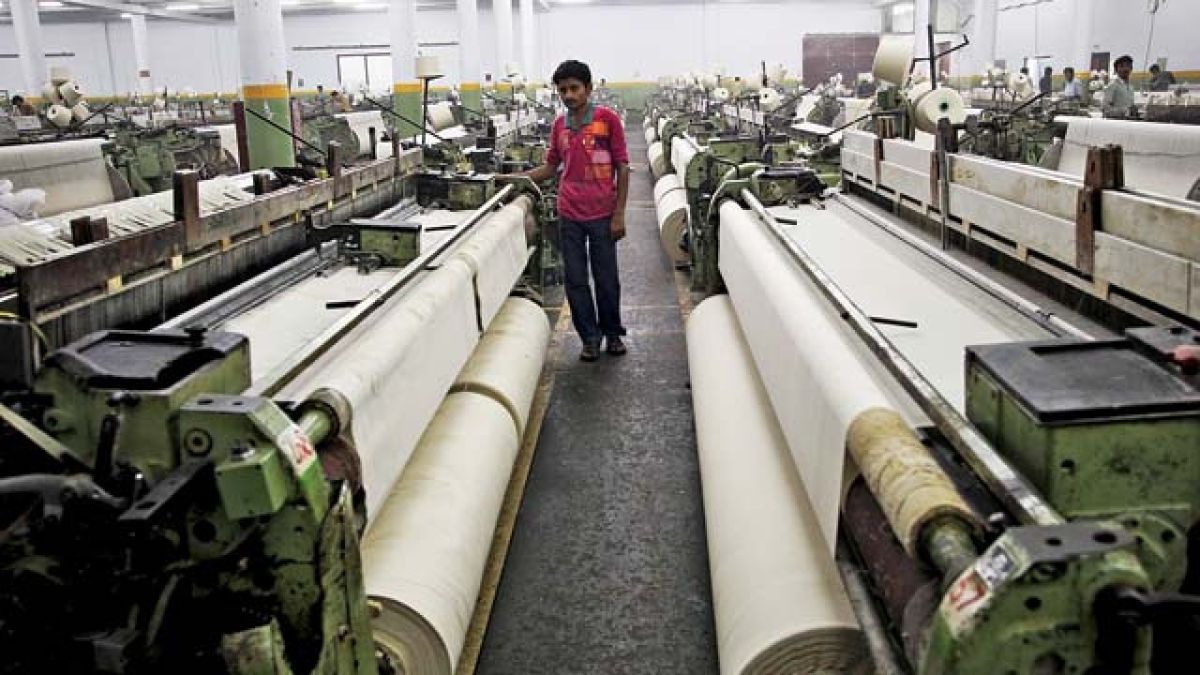Textile giant Welspun ditches Gujarat for Odisha’s favorable textile policy
The decision has been made by Welspun to spend a remarkable 3,050 crore rupees in Choudwar, which is located in the state of Odisha, in an integrated textile production plant and storage complex. This move, which represents a substantial change in Welspun's investment plan, has been welcomed by the government of Odisha. It is indicative of the possibility that textile titans could relocate from Gujarat to states that provide more favourable economic conditions.

Advertisement
Surat : With the announcement of Welspun’s first substantial expansion outside of the state of Gujarat in Odisha, the reverberations of unhappiness inside Gujarat’s textile industry have found their first echo. Welspun is a big participant in the sector in Gujarat, and it has textile production facilities in Vapi and Anjar in Kutch.
The decision has been made by Welspun to spend a remarkable 3,050 crore rupees in Choudwar, which is located in the state of Odisha, in an integrated textile production plant and storage complex. This move, which represents a substantial change in Welspun’s investment plan, has been welcomed by the government of Odisha. It is indicative of the possibility that textile titans could relocate from Gujarat to states that provide more favourable economic conditions.
Welspun, a renowned textile industry heavyweight, has made the decision to refocus its investment on Odisha, which is a move that highlights the rising unhappiness that is occurring inside Gujarat’s textile sector. In reaction to the inability of the Gujarat government to implement a much-anticipated industry-friendly textile policy, there are a number of large textile businesses in Gujarat, including Welspun, that may be contemplating expanding their operations to other states, particularly Odisha.
The Chief Minister of Odisha, Naveen Patnaik, lay the foundation stone for the ambitious project that Welspun is working on. This action demonstrates Odisha’s aggressive approach in luring textile investments. The evolving dynamics of India’s textile business landscape are highlighted by the fact that this is Welspun’s first big push into the textile market outside of Gujarat, according to industry insiders.
Welspun’s decision may be linked back to the frequent requests made by industry stakeholders, especially the Southern Gujarat Chamber of Commerce and Industry (SGCCI), pushing the Gujarat government to speed the drafting of a new textile policy. These appeals were the motivation for Welspun’s decision. Concerns have been expressed over the lack of continuity, notably with relation to the incentives for the cotton spinning industry, since the existing policy is scheduled to expire on December 31, 2023.
As stated by Ashish Gujarati, a prominent figure in the textile sector and a former president of the Securities and Exchange Commission of India (SGCCI), “We are anticipating a new favourable textile policy that will put an end to the migration and attract investors from neighbouring states such as Maharashtra, Rajasthan, and Madhya Pradesh.”
Odisha is a gold mine for trained textile workers, according to sources inside the industry, and the beneficial policy implemented by the government of Odisha is all set to lure other large textile firms from Gujarat. The man-made fabric (MMF) industry in Surat is the biggest in the country, employing over 15 lakh migrant workers. over sixty percent of the labour in the sector comes from the state of Odisha, which accounts for over nine lakh people. The remaining workforce comes from the states of Uttar Pradesh, Bihar, and Jharkhand.
The inclusion of the spinning business of man-made fibres as well as a variety of other textile sectors such as weaving, knitting, dyeing processing, and embroidery under the scope of the new textile policy was one of the most important requests that was put forth by representatives of the industry. In addition, the sector emphasised the need of matching Gujarat’s policies with those of neighbouring states like as Maharashtra, Karnataka, Telangana, and Tamil Nadu, places where textile plants are eligible for capital subsidies.
“Welspun and maybe other textile giants have been encouraged to look for greener pastures as a result of the lack of a clear roadmap for policy changes and the inability to address concerns raised by the sector. Odisha has been positioned as an attractive location for textile investments as a result of its proactive attitude and favourable industrial climate, according to the managing director of a large textile firm in Surat.
Advertisement

